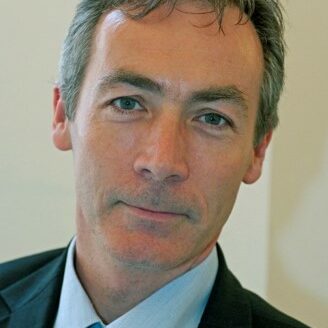Be Prepared, Be Brave, Begin
Dr. James Magowan, ECFI Co-Coordinating Director
Community Foundations of Canada, true to form, did not hold back with ambition and creativity in its bi-annual conference, held for the first time on-line. The strap-line for All In 2021 ‘Be Prepared, Be Brave, Begin’ set the scene, challenges, and call to action, for over 500 community foundations and stakeholders. Coming mainly from the field of 191 Canadian community foundations, but also from around the globe, the conference offered participants 3 days of insights and discussions – many of which were deliberately uncomfortable and provocative. The ‘brutal honesty’ of the event was a highlight of one of my European colleagues. As the national support organisation, Community Foundations of Canada, demonstrated the critical role it plays in developing and challenging the field and provoking thoughtful discussion and action – thus ensuring that community foundations remain relevant and effective as an important part of the philanthropy infrastructure in Canada.
Be Prepared
The tone of the event was very much influenced by news the week before of the discovery of a mass grave, in a residential school, of 215 indigenous children, thought to have died there during the twentieth century. For some European delegates there was almost a sense of intruding in this expression of national grief. It did sharpen the emphasis on the plight of indigenous communities and the legacy of colonial power, which has shaped the country and its philanthropy. Canada, it was said by a keynote speaker, Jesse Wente, a First Nations Canadian arts journalist and chairperson of the Canada Council for the Arts, is like ‘a shallow rooted forest’.
I felt there was particular poignancy to the customary acknowledgement of the land, that is was stated by every speaker with greater sincerity. Furthermore the keynote speakers and panellists focussed on the persistent failure of policy to address the rights of indigenous ‘First Nations’ people.
In setting the scene it was suggested that philanthropy is facing a mid-life crisis and it was akin to ‘shifting the deck chairs on a sinking ship’. There were calls for philanthropy to step up, to change, and to effect change. Vu Le, a self-professed ‘rabble rouser’ stated that philanthropy must ‘stop being the platform for the extra-curricular activity for rich white people’. He suggested foundations indulged themselves in this and called for an end to ‘toxic intellectualising’.
Be Brave
The starting point for being brave is to recognise that this might imply losing something. That something, it was suggested, might not only be what is done, but also what foundations look like, and how they are perceived by local communities. This could range from finding ways to be more inclusive, through to reforming boards and even, where appropriate, encouraging staff to move, or be moved on. It is essential that foundations walk the talk, and prove their catch-all strap lines like ‘for good forever’. Most importantly is the issue of addressing power dynamics, which might be uncomfortable for donors. Community foundations have an important ‘brokerage’ role to play here.
Begin
‘We create what we think’ said Elder Peter on the opening of the final day.
Discussions that followed suggested a ‘re-set’, with brave action, from deployment of all resources i.e. all assets but also all the functions of a community foundation – as a grantmaker, programme implementer, connector, knowledge builder, and thought leader. But further, it was suggested that community foundations should be proactive in initiating reparation for the inequalities of the past.
Recognising that community foundations themselves will only remain relevant if they continue to work hard to be connected to all the communities in their locality, the simple closing call was to make the road by walking (perhaps the road less travelled) and to ‘be the change’.
Lessons Europe
“There is already good practice in Europe around the use of all assets and functions but it remains as a reminder to be brave and to ‘re-imagine the future’, to broker power, and importantly to think ‘systems change’. Support organisations have a critical role in prompting these discussions and helping implement solutions.”
While the community foundation field in Europe, comprising almost 900 community foundations, is more diverse, and set in very different national contexts, there are some fundamental lessons to be drawn from the event. Well developed in a few countries, it is by and larger nascent, so has the opportunity to establish itself and develop having seen to road travelled by others. This is most relevant to the issue of the degree to which the community foundation is donor or community oriented. There is evidence in Canada of the successful development of the donor servicing / facilitating model and a desire now to shift towards communities. This has always been a dilemma but one which now seems to be central to strategic discussions. Longer established community foundations, for example in the UK have also been addressing this, however there is an opportunity for those starting out to set out on a path that ensures they remain highly connected to the communities they serve and in particular to the issues and needs of those most marginalised and excluded. There is already good practice in Europe around the use of all assets and functions but it remains as a reminder to be brave and to ‘re-imagine the future’, to broker power, and importantly to think ‘systems change’. Support organisations have a critical role in prompting these discussions and helping implement solutions.

Dr. James Magowan
Co-Coordinating Director, ECFI
